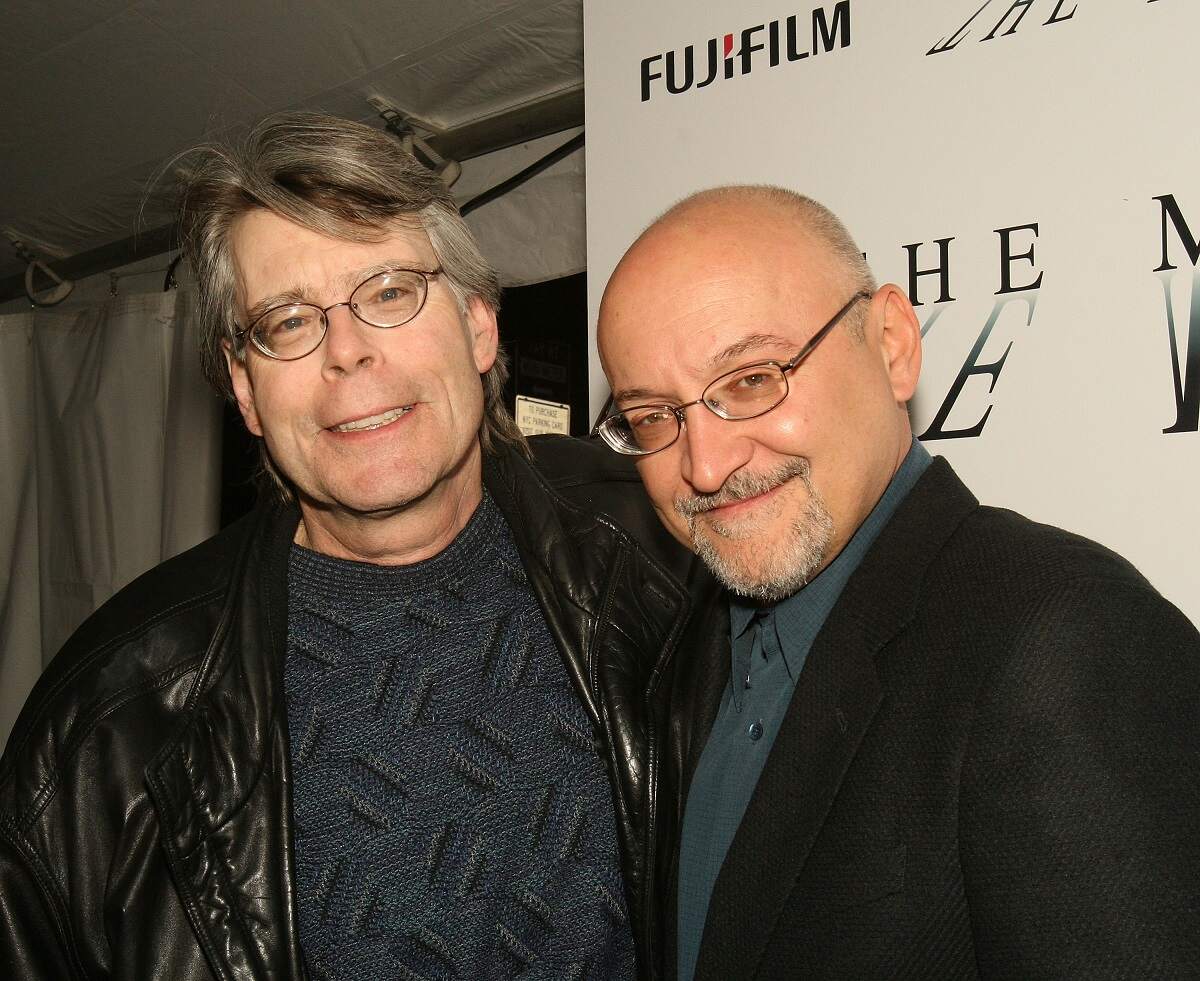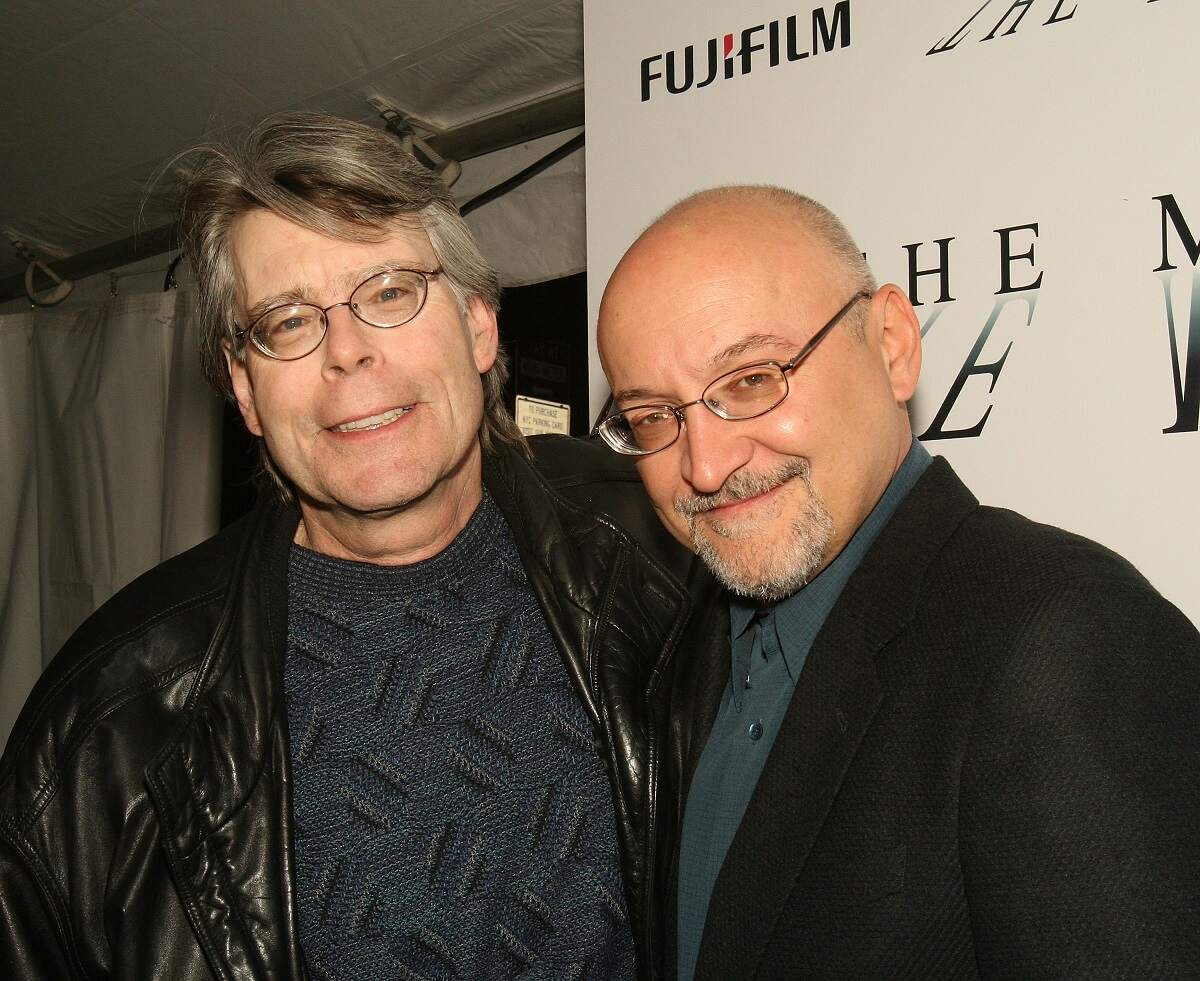
Stephen King Loved ‘The Mist’ Changes Because of Its ‘Anti-Hollywood’ Ending
Many Stephen King works have been adapted countless times for the big and small screens, with varying degrees of success. One adaptation that stands out, however, is the 2007 film version of his novella, The Mist. While the movie received mixed reviews from audiences and critics alike, King himself loved it, particularly because of its “anti-Hollywood” ending.
Director Frank Darabont made some changes to the Stephen King novella ‘The Mist’

The Mist is a novella that was originally published in 1980 as part of King’s “Dark Forces” anthology. It tells the story of a group of people trapped in a supermarket when a strange mist descends upon their town, bringing with it all terrifying creatures. As the survivors attempt to hold out against the beasts, they also begin to turn on each other, with tensions rising as their situation becomes more desperate.
The 2007 film adaptation, directed by Frank Darabont, deviates from the original story in some ways. While the basic premise remains the same, the film adds new characters and changes the dynamic between them. It also features a more intense and violent ending than the novella, one that King himself did not write.
King ends The Mist with David Drayton possibly hearing civilization on the radio and telling his son the words: “One of them is Hartford, the other is hope.”
On the other hand, Darabont’s adaptation finds Drayton and a small group of other survivors in a car. As they drive, they see the monsters taking over the world and decide it’s better to die than continue fighting. But once Drayton has executed everyone, including his son, there’s a terrible twist. The army appears and quickly wipes out the monsters, reclaiming the world.
Stephen King loved ‘The Mist’ changes because of its ‘anti-Hollywood’ ending
Despite the changes to the original story, King has been vocal in his admiration for the film version of The Mist. In particular, he has praised the movie’s ending for being so different.
In an interview with Yahoo! Entertainment, King said, “When Frank said that he wanted to do the ending that he was going to do, I was totally down with that. I thought that was terrific. And it was so anti-Hollywood — anti-everything, really! It was nihilistic. I liked that.”
He went on to point out how fans and critics who initially didn’t like the ending ended up loving it after “getting used to it.”
King’s opinion of the film’s ending is particularly noteworthy because it represents a departure from his typical approach to storytelling. The author has often been criticized for his reliance on “happy endings,” with many of his stories concluding on a note of hope or redemption.
Stephen King’s reactions to other adaptations of his work
While The Mist is one of King’s favorite adaptations of his work, it is by no means the only one. Over the years, King has seen many of his stories brought to life on screen, with mixed results.
One adaptation that King has been critical of is Stanley Kubrick’s 1980 film The Shining. As per Far Out, King famously disliked the changes that Kubrick made to the story, particularly in his portrayal of the character of Jack Torrance (played by Jack Nicolson). The award-winning author has been vocal in his belief that Kubrick’s version of The Shining lacks his novel’s emotional depth and psychological complexity.
On the other hand, King has praised other adaptations of his work, including the 1994 miniseries version of The Stand and the 2017 movie version of It. In both cases, King has cited the faithfulness of the adaptations to his original stories as a key factor in their success.
King’s reaction to Darabont’s changes to The Mist is a good reminder that an adaptation doesn’t always have to stay true to the original. The unrelenting bleakness of the movie’s ending is what makes it so memorable.


